THE LORENZO DA PONTE ITALIAN LIBRARY
General Editors
Luigi Ballerini and Massimo Ciavolella
University of California at Los Angeles
Honorary Chairs
Ambassador Gianfranco Facco Bonetti
Honourable Anthony J. Scirica
Advisory Board
Remo Bodei, Universit di Pisa
Lina Bolzoni, Scuola Normale Superiore di Pisa
Francesco Bruni, Universit de Venezia
Cesare De Michelis, Universit di Padova
Giorgio Ficara, Universit di Torino
Giuseppe Mazzotta, Yale University
Gilberto Pizzamiglio, Universit di Venezia
Margaret Rosenthal, University of Southern California
John Scott, University of Western Australia
Elissa Weaver, University of Chicago
THE DA PONTE ITALIAN LIBRARY SERIES
Five Comedies
CARLO GOLDONI
Edited by Gianluca Rizzo and Michael Hackett
with Brittany Asaro
Introduction by Michael Hackett
with an essay by Cesare De Michelis
UNIVERSITY OF TORONTO PRESS
Toronto Buffalo London
Five Comedies
University of Toronto Press 2016
Toronto Buffalo London
www.utppublishing.com
Printed in the U.S.A.
ISBN 978-1-4426-5028-2
 Printed on acid-free, 100% post-consumer recycled paper with vegetable-based inks.
Printed on acid-free, 100% post-consumer recycled paper with vegetable-based inks.
The Lorenzo Da Ponte Italian Library
Library and Archives Canada Cataloguing in Publication
Goldoni, Carlo, 17071793
[Plays. English. Selections]
Five comedies / Carlo Goldoni ; edited by Gianluca Rizzo and Michael Hackett ; with Brittany Asaro ; introduction by Michael Hackett ; with an essay by Cesare De Michelis.
(The Da Ponte Italian library series)Includes bibliographical references.Contents: The new house The coffee house Off to the country Adventures in the country -- Back from the country.
ISBN 978-1-4426-5028-2 (bound)
1. Goldoni, Carlo, 17071793Translations into English. I. De Michelis, Cesare, writer of added commentary II. Hackett, Michael, 1950, editor, writer of introduction III. Asaro, Brittany, 1984, editor IV. Rizzo, Gianluca, 1979, editor V. Goldoni, Carlo, 17071793. Smanie per la villeggiatura. VI. Goldoni, Carlo, 17071793. Avventure della villeggiatura. VII. Goldoni, Carlo, 17071793. Ritorno dalla villeggiatura. VIII. Goldoni, Carlo, 17071793. Bottega del caff. IX. Goldoni, Carlo, 17071793. Casa nova. X. Title. XI. Series: Lorenzo da Ponte Italian library
PQ4695.E5 2016 852'6 C2015-906942-4
This book has been published under the aegis and with the financial assistance of Fondazione Cassamarca, Treviso; Ministero degli Affari Esteri, Direzione Generale per la Promozione e la Cooperazione Culturale; Ministero dei Beni Culturali, Direzione Generale per i Beni Librari e gli Istituti Culturali, Servizio per la Promozione del Libro e della Lettura.
University of Toronto Press acknowledges the financial assistance to its publishing program of the Canada Council for the Arts and the Ontario Arts Council, an agency of the Government of Ontario.

Foreword
Carlo Goldoni was born in Venice, in 1707. He demonstrated a strong interest in theatre from a very early age. However, he studied to become a lawyer, and eventually obtained his diploma from the University of Padua. Even as a young attorney, his heart was still in the theatre, and he would sometimes appear on stage, acting in various comedies. In 1736 he met Nicoletta Conio the daughter of a notary whom he married soon after, and with whom he spent the rest of his life.
When the Medebach Company asked him to become its poet and writer, Goldoni abandoned all other cares and dedicated himself to theatre full time. The open-mindedness of the actors allowed him to begin implementing his reform of the stage. Over the following years, Goldoni presented many of his comedies at the Teatro San Angelo, and then at the Teatro San Luca, where he perfected his reform.
In 1761, he moved to Paris, where he had been called to head the Comdie Italienne. Here he wrote several comedies in Italian and French, as well as a few improvised plays (a soggetto). He knew Voltaire, and became friends with Diderot. He received a pension from the crown in recognition of his works, but after the onset of the Revolution, the Convention revoked it. On 7 February 1793, Marie-Joseph Chnier succeeded in having it restored, but it was too late: Goldoni had died the day before, on 6 February 1793.
We mentioned the reform of theatre as one of Goldonis most important achievements. Before him, the Italian stage was dominated by the commedia dellarte: actors followed a general plot (soggetto) and improvised their parts, employing all sorts of antics and buffoonery. The protagonists of these commedie a soggetto were stock characters that often became fixed as masks. Some of the most famous are: Pantalone (Pantaloon), the old, rich, and foolish merchant; Brighella, the rogue and trickster; Arlecchino (Harlequin), the famished servant who came to the city from the countryside; Balanzone, the pedantic doctor from Bologna; and many others, such as the young lovers (Florindo and Rosaura), the clever maid (Colombina), and so on.
The plots are often very complicated, filled with twists and turns and serendipitous reunions of long-lost relatives, and they usually end with a big wedding scene. The enormous popularity of this form of entertainment throughout Europe was due entirely to the art of the actors, whose improvisations lent spontaneity, vigour, and charm to the performances.
Goldonis reform consists of replacing the soggetto with what he called comedy of character. He would write out all the parts and ask the actors to memorize them and repeat them exactly as they were written. In addition, the engine of the dramatic events was not a complex series of accidents and extraordinary coincidences, as was the rule with commedia dellarte; rather, each play followed the everyday vicissitudes of easily recognizable characters, taken from the real life of Venices canals and alleyways.
Goldonis works have been traditionally praised for their contribution to the advancement of Italian literature. His reform of theatre is often seen as a symptom of a larger trend, a move away from the abstract and formulaic ways of the past to embrace the new era, with its focus on the outside, the objective and observable world of nature. Such a statement could be easily proven by opening any of the many excellent histories of Italian literature available to the general public, but to give an idea of how deeply rooted such an opinion is, we will look at the manual that most influenced the literary critics of the nineteenth and twentieth centuries, Francesco De Sanctiss Storia della letteratura italiana. Francesco De Sanctis, History of Italian Literature, Vol. 2, translated by Joan Redfern (New York: Barnes and Noble, 1968). --> In introducing Goldoni, De Sanctis writes:
His reform at bottom was the revival of the word, the restoration of literature to the place that belonged to it and with the honors that were due to it; in fact, to put it shortly, it was the New Literature. (De Sanctis, 870)
By New Literature De Sanctis means that move away from the past mentioned above. What is notable in this passage is the emphasis on the word, and its revival. Up to that point, dramas and comedies had been written in a pedantic, literary language that bore no resemblance to the idioms spoken by ordinary citizens in their ordinary lives. In fact, Italian did not yet exist as a spoken language at this point in the history of the peninsula: only with the advent of radio, cinema, and television would a common spoken language emerge. At this stage, all cities and regions had different dialects that received a variable influence from the written language, depending on the occasion of the utterance and the degree of erudition of the speaker. Goldoni managed to create a linguistic variety that was not only understood throughout the country, as it was rooted in the traditional language of literature, but at the same time was nimble enough to mimic the spoken conversation of everyday life.

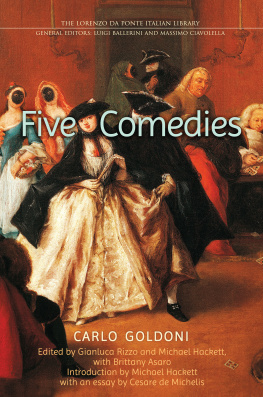
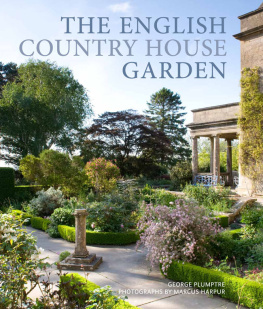

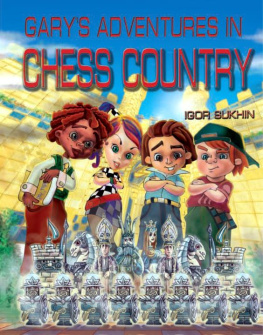
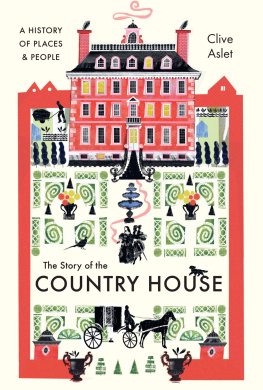
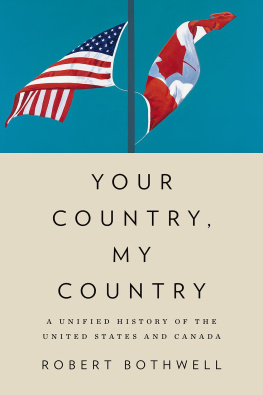


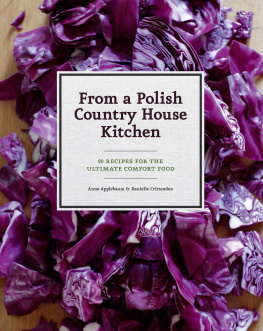
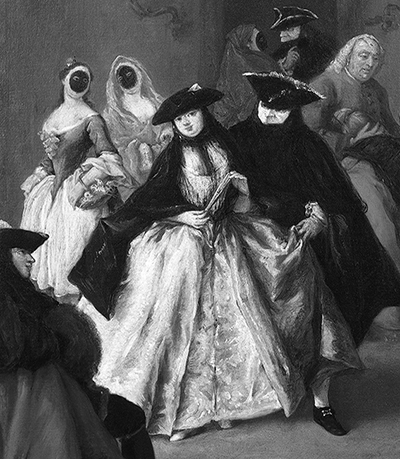
 Printed on acid-free, 100% post-consumer recycled paper with vegetable-based inks.
Printed on acid-free, 100% post-consumer recycled paper with vegetable-based inks.